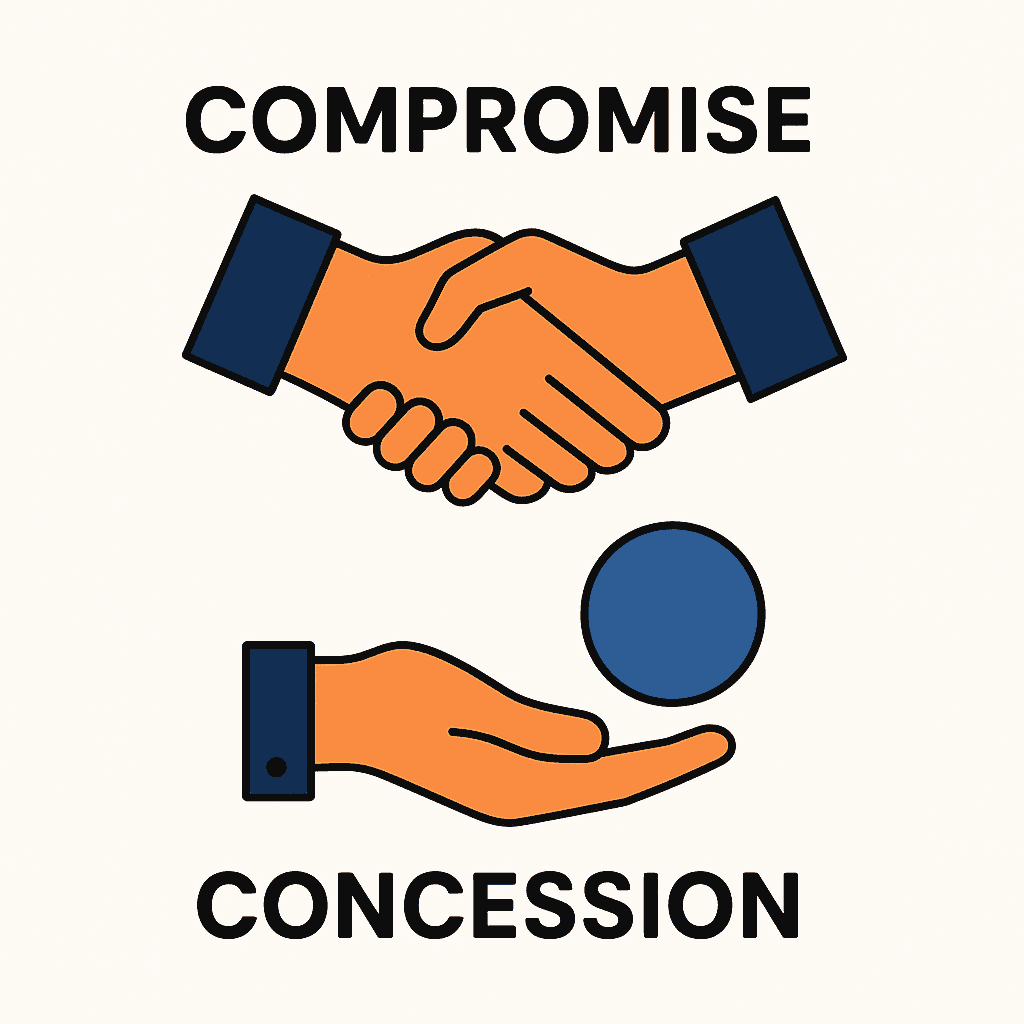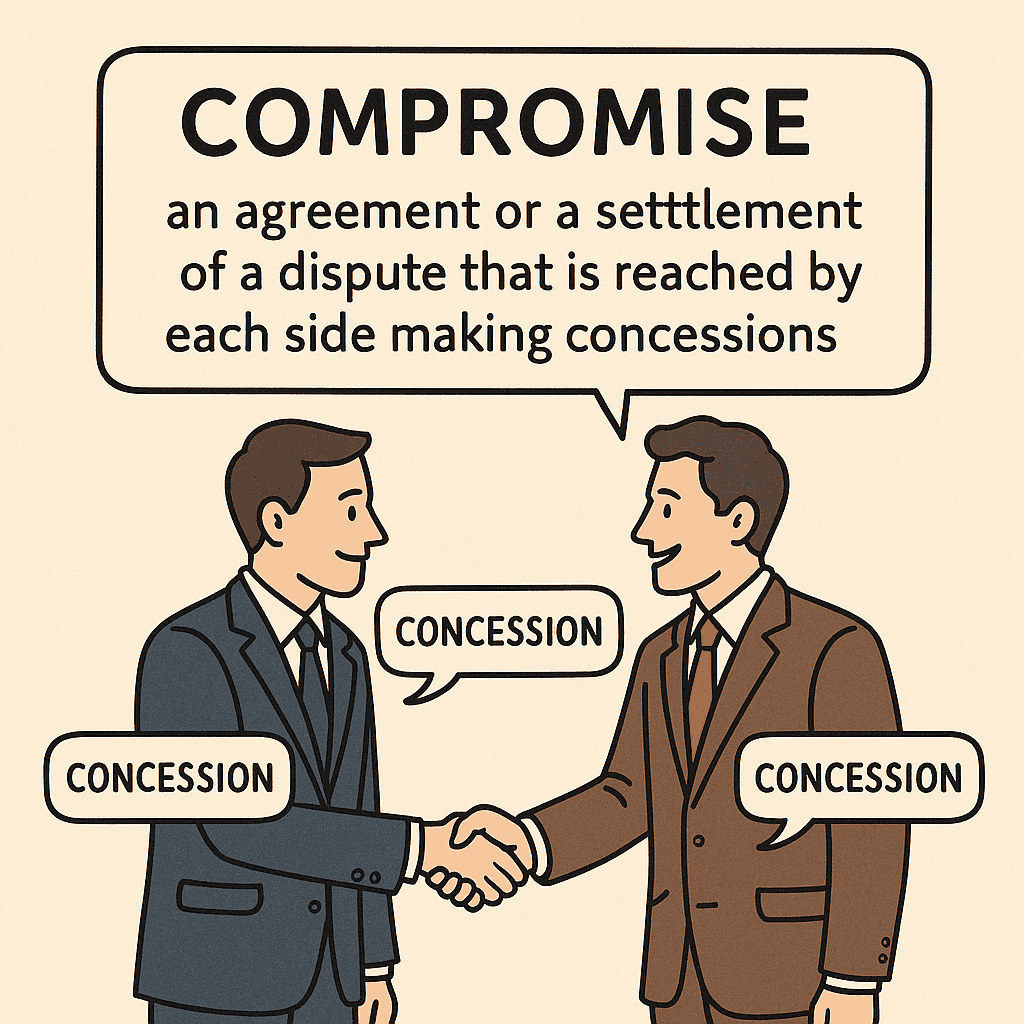Summary
Compromise means mutual adjustment where both sides give up something to reach an agreement. Whereas, Concession means a one-sided yield, where only one party gives ground. The key difference is balance: compromise is cooperative, concession is unilateral.
Comparison Table
| Aspect | Compromise | Concession |
|---|---|---|
| Meaning | Both sides make adjustments | One side yields or grants something |
| Direction | Mutual, two-way | Unilateral, one-way |
| Tone | Neutral or positive, cooperative | Reluctant, pressured, or generous |
| Use in talks | Finding middle ground, fair settlement | Persuasion, appeasement, goodwill gesture |
| Expressions | reach/strike a compromise | make/grant a concession, concede that |
Core Difference
A compromise is reached when two or more sides move closer to each other. Everyone sacrifices part of their original demand to achieve a balanced result. A concession, however, is made when only one side gives something up—whether reluctantly under pressure or voluntarily as a sign of goodwill.
Nuance and Tone
- Compromise usually carries a neutral or positive nuance. It suggests fairness, cooperation, and practicality.
- Concession can sound weaker, as if one side lost ground, but it may also suggest generosity or strategic calculation.
- Be aware that compromise as a verb has another meaning: to weaken or endanger (e.g., compromise security).
Typical Expressions
- Compromise: reach a compromise, strike a compromise, compromise on price/terms
- Concession: make a concession, grant a concession, as a concession to someone, concede that…
Examples
- Both sides reached a compromise on working hours.
- The supplier made a concession by offering free delivery.
- They compromised on the design to meet the deadline.
- As a concession to residents, the city reduced noise at night.



